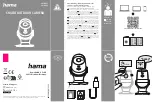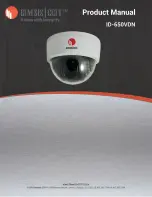
58
Temperature
• The flash unit may be used over a temperature range of 0 °C to 40 °C.
• Do not expose the flash unit to extremely high temperatures (e.g. in
direct sunlight inside a vehicle) or high humidity.
• The response of the data panel slows as the temperature decreases, and
the panel darkens at high temperatures. Restore it to normal
temperature if these problems occur.
• To prevent condensation forming on the flash, place it in a sealed plastic
bag when bringing it from a cold environment into a warm
environment. Allow it to reach room temperature before removing it
from the bag.
• Battery capacity decreases at colder temperatures. Keep your camera
and spare batteries in a warm inside pocket when shooting in cold
weather.
may blink even when there is some power left in the
batteries in cold weather. Batteries will regain some of their capacity
when warmed to normal operating temperature.
• This flash unit is not waterproof. Be careful not to bring it into contact
with water or sand when using it at the seashore, for example. Contact
with water, sand, dust, or salt may result in a malfunction.
Maintenance
Remove this unit from the camera. Clean the flash with a dry soft cloth. If
the flash has been in contact with sand, wiping will damage the surface,
and it should therefore be cleaned gently using a blower. In the event of
stubborn stains, use a cloth lightly dampened with a mild detergent
solution, and then wipe the unit clean with a dry soft cloth. Never use
strong solvents, such as thinner or benzine, as these damage the surface
finish.
















































